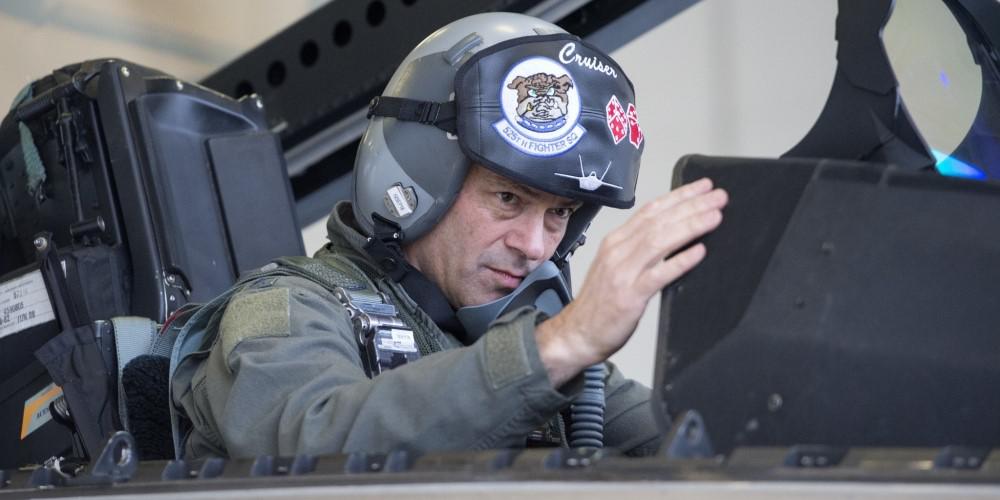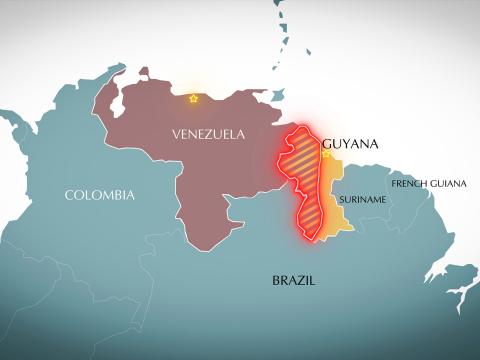Advice for the Pacific Region
After two years as the commander of the Pacific Air Forces, or PACAF, Gen. Charles Brown Jr., USAF, moves on from guiding airmen and operations in the complicated region. During a time of growing near-peer competition from China, Gen. Brown leaves advice for the new commander of PACAF, Lt. Gen. Kenneth Wilsbach, USAF. Gen. Wilsbach, who also will receive his fourth star, takes the helm at PACAF today.
Previously, Gen. Wilsbach was the commander of the 7th Air Force and the deputy commander of U.S. Forces in Korea.
When asked what advice he would give to the new PACAF commander, Gen. Brown, speaking virtually to AFCEA International’s Hawaii monthly chapter meeting last week, suggested that, “relationships really matter.”
He has spent a good portion of his time in that role building relationships and forging partnerships with countries in the Indo-Pacific, as a deterrence against adversaries—including our main near-peer competitor, China. In particular, Gen. Brown broadened ties to the Air Chiefs from militaries in the region, including hosting the leaders at the 2019 Pacific Air Chiefs Symposium at PACAF Headquarters, and visiting their countries.
“One thing that our adversaries don't have is allies and partnerships,” Gen. Brown stated. “The relationship my predecessors built and the relationships I have with the Air Chiefs in the region really helped bring us together, much closer to be able to actually act as a deterrent as well as act as insurance.”
The military is keeping a close eye on China’s operations in the Indo-Pacific, as well as in Africa, which has increased, the general said.
In particular, China engaged in a military exercise last week in the Paracel Islands in the South China Sea, which are considered contested waters and territory, according to the Defense Department. In a recent statement, DOD warned that the People's Republic of China’s (PRC's) actions could further destabilize the situation in the South China Sea.
“Such exercises also violate PRC commitments under the 2002 Declaration on the Conduct of Parties in the South China Sea to avoid activities that would complicate or escalate disputes and affect peace and stability,” DOD officials stated. “The military exercises are the latest in a long string of PRC actions to assert unlawful maritime claims and disadvantage its Southeast Asian neighbors in the South China Sea. The PRC’s actions stand in contrast to its pledge to not militarize the South China Sea and the United States' vision of a free and open Indo-Pacific region, in which all nations, large and small, are secure in their sovereignty, free from coercion and able to pursue economic growth consistent with accepted international rules and norms.”
The outgoing PACAF commander urged warfighters to spend more time understanding China, citing a U.S. knowledge gap.
“I think we have a real comfort zone in understanding of what an extremist is to an extent, and we have a real comfort zone about understanding the Russians based on our experience in the Cold War, but I don't know that we have the same level of expertise within the Department of Defense and within our airmen to understand the PRC, how they operate and how they think,” Gen. Brown emphasized. “We understand how many airplanes they have, how many missiles, those kinds of things. But we need to really get into and understand this region much more than we do.”
In addition, the general implored the service to change its train of thought as far as connectivity. “Currently, our primary plans have us executing as if we are connected and our contingency emergency plans address execution where we are disconnected or our communication is contested,” he said. “Instead, we should be planning primarily to operate in a contested degraded environment. And if we find ourselves fully connected, we should be surprised and then suspect we are being spoofed.”
In preparation for leaving his role as PACAF commander, the general said he had spoken to every Air Chief in the region, not just to say goodbye, but to talk about what they accomplished together and where to go next.
“And by the way my successor, Gen. Wilsbach, has had more time here in the Indo-Pacific than I have,” Gen. Brown said.
You may also enjoy:
Access to Data is Key for Indo-Pacific Operations
Moving Forward with Agile Combat




Comments